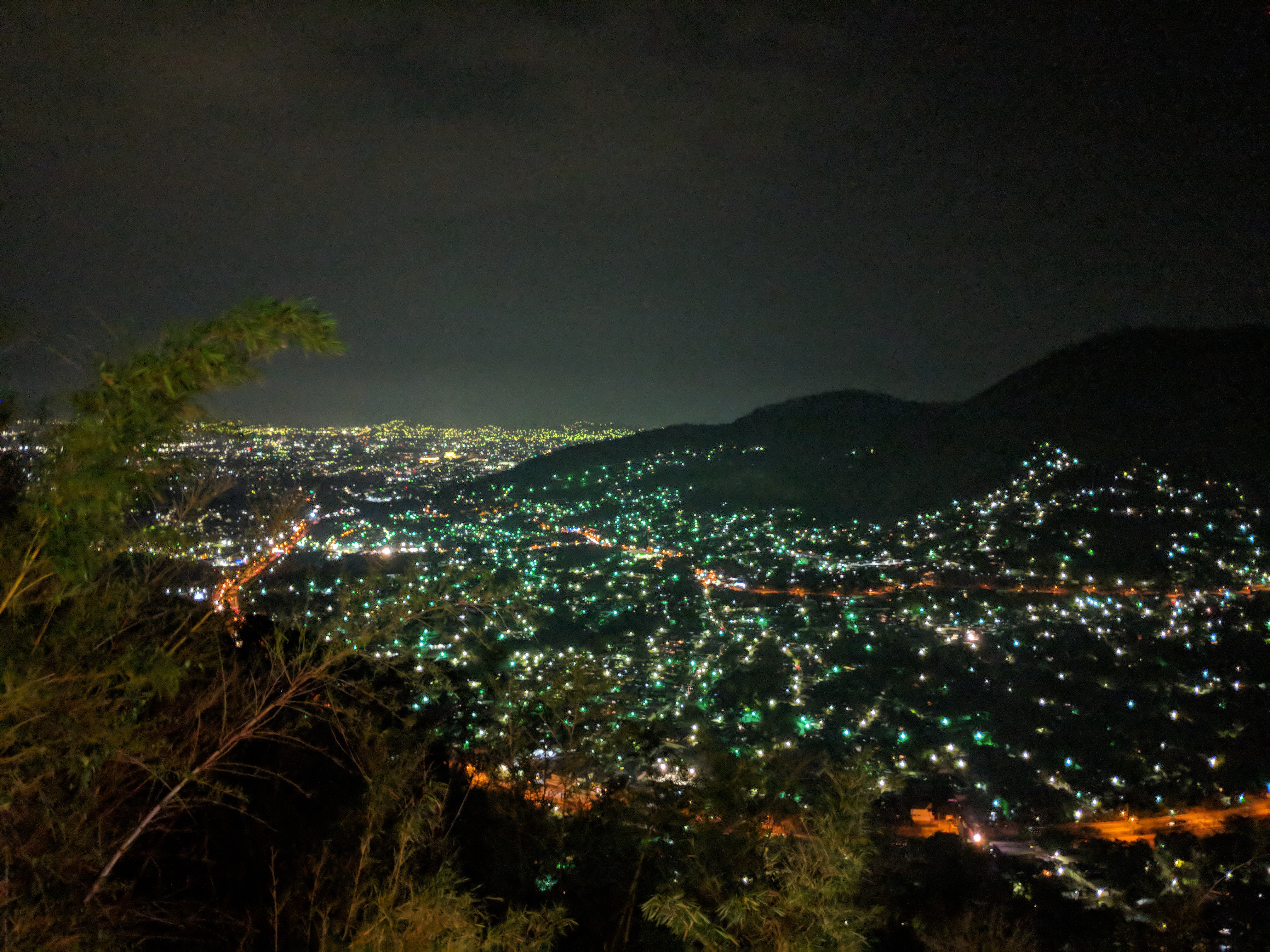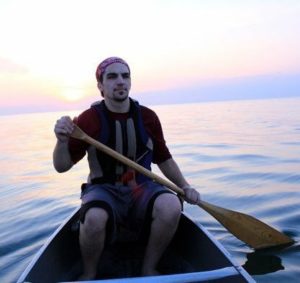Central America Travel Seminar: The War Years

BY GERAN LORRAINE
This morning we had the privilege of worshiping with the congregation at The Iglesia Reformada Calvinista in San Salvador. We were warmly welcomed and encountered God among wonderful hermanas y hermanos. They broke bread and watermelon with us after the service and we left drenched with the hospitality of the Salvadoran people.
After church, we spent some downtime catching up with old friends and getting to know new ones better. Before we embarked for Oscar Romero’s Tomb at the Metropolitan Cathedral, we sat and immersed ourselves in the story of our bus driver, Carlos. He told us about the war years (1980-1992) and what he experienced in his adolescence. During that time he often had to hide from the El Salvadorian Military that was attempting to conscript children by entering schools or who they found playing outside. The legal age for conscript at the time was 16, but kids who looked capable of holding a weapon were all the military needed to conscript the boys. Carlos was 12 in 1989 and had almost been conscripted twice, saved only by his pleading mother and father. He told us about his friend whose brother was killed in a crossfire. The boy’s family was unable to properly bury him for three days because the city was shut down by the fighting. He told us about hiding on metal roofs that burned his skin for hours to hide from the Army. Carlos’ story is full of both immense suffering and profound resilience. He managed to live through the war and told us that “God must have had a purpose for his life.” Indeed, he has worked hard while being a loving father to two children as well a good husband. The love that he has given has worked to create a helping desire in his children. Carlos’ story has deeply affected us and I am grateful we had the privilege to wade with him through his history.
We all then boarded Carlos’ bus and headed to the Metropolitan Cathedral to view the church that Romero preached at and to view his crypt. His beato had clearly begun and there was a family there praying the rosary for their baby, who was no longer ill after they asked for Romero’s intercession. Afterward, we walked around Gerado Barrio’s plaza. The church sits on the plaza, and during Romero’s funeral shots were fired into the crowd from the nearby National Palace. It’s impossible to imagine such a tragedy, especially at a funeral. The weight of the place could be felt in the plaza.
We made a brief stop at the Iglesia El Rosario to take in Mass and see the sunshine through the beautiful stained glass windows. The singing had a beautiful and enchanting sound in the church bouncing off the colorful brick wall, which had more glass embedded to reflect the light. It was truly a beautiful and stunning experience.
We spent the rest of our evening around a large table eating pupusa, reflecting, and taking in the lights of San Salvador — hoping that the lights of the histories we are learning, reflect in our own lights now.
Geran Lorraine is a Master of Divinity student at Union.










